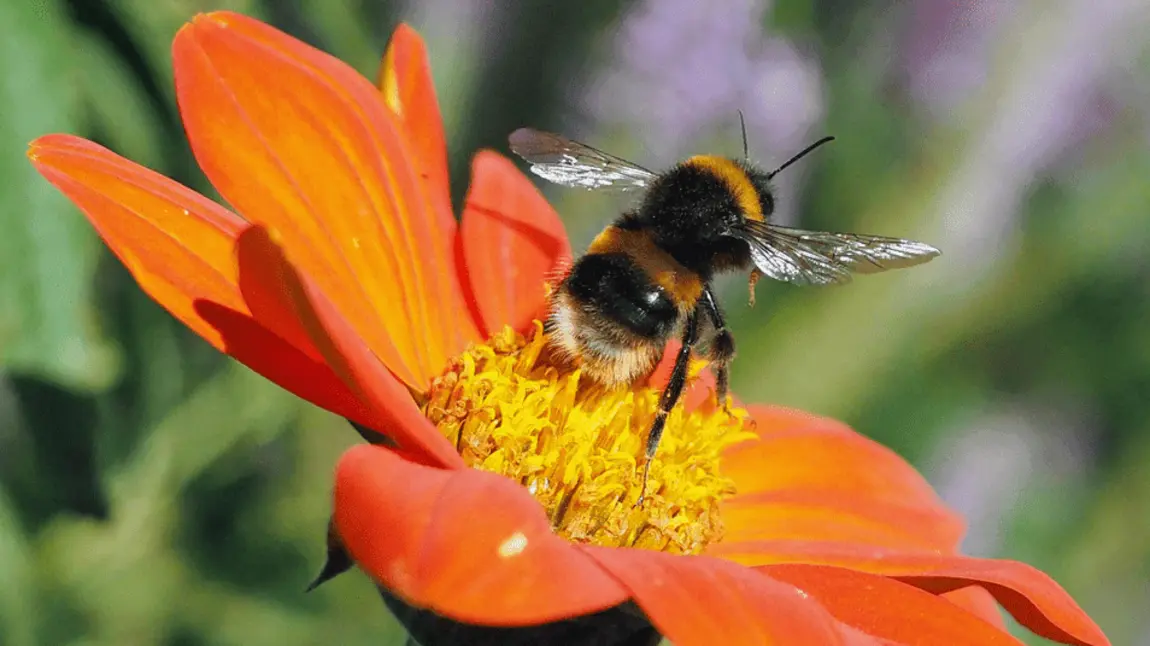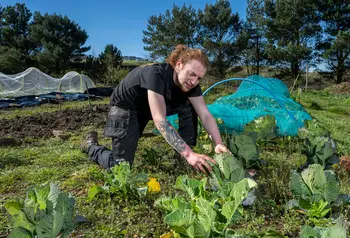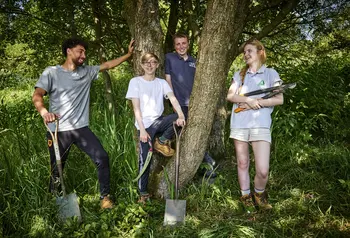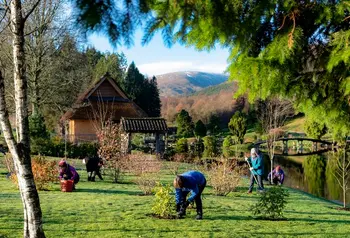The plight of the bumblebees and how we can save them

By pollinating food crops and wild plants, bumblebees are crucial for our lives and the natural world. Modern farming practices and habitat loss means they are increasingly under threat.
There are 24 different [bumblebee] species who call the UK home but two species have already become extinct so we urgently need to address this.
Aydan, The Bumblebee Conservation Trust trainee
Aydan, 23, is a trainee on our New to Nature programme who is working with The Bumblebee Conservation Trust. The charity helps to monitor and conserve bumblebees and their habitats.
Speaking about bumblebees, Aydan says: “There are three different types of bees – honeybees that make honey but also bumblebees and solitary bees. These are our pollinators and important for our ecosystems and food chain. There are 24 different species who call the UK home but two species have already become extinct so we urgently need to address this.”
The UK has lost over 97% of its ancient wildflower meadows since the Second World War which the bumblebees rely on. This is due to increased agriculture, urbanisation and pesticide use.
How we can help save our bumblebees
Making our local communities more bumblebee friendly can help. The Bumblebee Conservation Trust offer free guides on how communities can get involved at home, school or in a community space.
People can plant bumblebee-friendly flowers like daisies and foxgloves in their communities.
Aydan, The Bumblebee Conservation Trust trainee
Talking about what people can do to help our bees recover, Aydan says: “People can plant bumblebee-friendly flowers like daisies and foxgloves in their communities.
"Also if you’re able to reduce the amount of times you mow your lawn, it encourages natural flowers to come through and offers our bees a lifeline. It helps to connect up habitats like nature reserves across our counties and offer a space for our bee population.”
Supporting young people through New to Nature
Aydan was able to work with The Bumblebee Conservation Trust thanks to his traineeship through the New to Nature programme – which is creating work placements at inspiring organisations such as the Zoological Society of London (ZSL), The Woodland Trust, Royal Parks and more.
To mark The King’s coronation, we have given an additional £1million to the programme creating an extra 25 roles. In partnership with community charity Groundwork, the New to Nature programme aims to get young people from diverse backgrounds into nature-based work placements to increase diversity and enrich the environmental sector.
Talking about the programme, Groundwork's UK chief executive Graham Duxbury, says: “These traineeships will be absolutely transformative. It’s a chance to get that first bit of experience under their belt but with a proper living wage and in a proper environment. For those people this will just open a door and they will blossom in their roles, and go on and be important parts of the sector.”
Find out more about our New to Nature programme.




